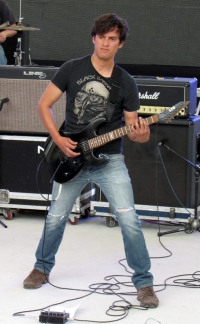Vocal Sheet Music
 "Music is the art which is most nigh to tears and memory. " Oscar Wilde
"Music is the art which is most nigh to tears and memory. " Oscar Wilde
Giovanni Pierluigi da Palestrina
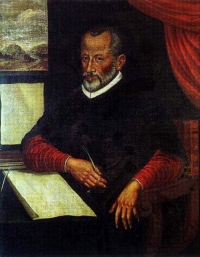
Giovanni Pierluigi da Palestrina (b. 3 February 1525 – 2 February 1526; d. 2 February 1594) was an Italian Renaissance composer and the most well-known 16th-century representative of the Roman School of musical composition. Palestrina became famous through his output of sacred music. He had an enormous influence on the development of Roman Catholic church music, and his work has often been seen as the culmination of Renaissance polyphony. It is only recently, with the discovery and publication of a great deal of hitherto unknown or forgotten music by various Renaissance composers, that we have had the means to properly assess Palestrina in historical context.
Ravel

Joseph-Maurice Ravel (March 7, 1875 – December 28, 1937) was a French composer of Impressionist music known especially for his melodies, orchestral and instrumental textures and effects. Much of his piano music, chamber music, vocal music and orchestral music has entered the standard concert repertoire.
Ravel's piano compositions, such as Jeux d'eau, Miroirs and Gaspard de la Nuit, demand considerable virtuosity from the performer, and his orchestral music, including Daphnis et Chloé and his arrangement of Modest Mussorgsky's Pictures at an Exhibition, uses a variety of sound and instrumentation very effectively.
Ravel is perhaps known best for his orchestral work, Boléro (1928), which he considered trivial and once described as "a piece for orchestra without music."
According to SACEM, Ravel's estate earns more royalties than that of any other French musician. According to international copyright law, Ravel's works are public domain since January 1, 2008 in most countries. In France, due to anomalous copyright law extensions to account for the two world wars, they will not enter the public domain until 2015.
Ravel's piano compositions, such as Jeux d'eau, Miroirs and Gaspard de la Nuit, demand considerable virtuosity from the performer, and his orchestral music, including Daphnis et Chloé and his arrangement of Modest Mussorgsky's Pictures at an Exhibition, uses a variety of sound and instrumentation very effectively.
Ravel is perhaps known best for his orchestral work, Boléro (1928), which he considered trivial and once described as "a piece for orchestra without music."
According to SACEM, Ravel's estate earns more royalties than that of any other French musician. According to international copyright law, Ravel's works are public domain since January 1, 2008 in most countries. In France, due to anomalous copyright law extensions to account for the two world wars, they will not enter the public domain until 2015.
Pierre Attaignant
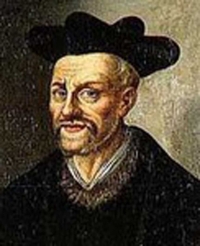
Pierre Attaingnant (c. 1494 – late 1551 or 1552) was a French music printer, active in Paris.
Attaingnant's major contribution to music printing consists in his popularizing the single-impression method for music printing, which he first employed in his 1528 publication Chansons nouvelles en musique à quatre parties. In this system, the individual notes were printed directly onto segments of staff, and so the notes, staff lines, and text could all be printed with one send through the printing press. The main disadvantage of this method was the alignment of the staff lines, which often had a “bumpy” look - some being slightly higher or slightly disjointed from others. Nevertheless, this method became standard music printing practice across Europe in the 16th and 17th centuries.
Apart from his 36 collections of chansons, he also published books with pieces in lute or keyboard tablature, as well as Masses and motets.
Attaingnant's major contribution to music printing consists in his popularizing the single-impression method for music printing, which he first employed in his 1528 publication Chansons nouvelles en musique à quatre parties. In this system, the individual notes were printed directly onto segments of staff, and so the notes, staff lines, and text could all be printed with one send through the printing press. The main disadvantage of this method was the alignment of the staff lines, which often had a “bumpy” look - some being slightly higher or slightly disjointed from others. Nevertheless, this method became standard music printing practice across Europe in the 16th and 17th centuries.
Apart from his 36 collections of chansons, he also published books with pieces in lute or keyboard tablature, as well as Masses and motets.
Gabriel Faure

Gabriel Urbain Fauré (12 May 1845 – 4 November 1924) was a French composer, organist, pianist, and teacher. He was the foremost French composer of his generation, and his musical style influenced many 20th century composers. His harmonic and melodic language affected how harmony was later taught.
Enrique Granados
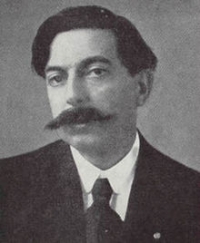
Enrique Granados y Campiña (27 July 1867 – 24 March 1916) was a Spanish Catalan pianist and composer of classical music. His music is in a uniquely Spanish style and, as such, representative of musical nationalism. Enrique Granados was also a talented painter in the style of Francisco Goya.
Granados wrote piano music, chamber music (a piano quintet, a piano trio, music for violin and piano), songs, zarzuelas, and an orchestral tone poem based on Dante's Divine Comedy. Many of his piano compositions have been transcribed for the classical guitar: examples include Dedicatoria, Danza No. 5, Goyescas.
Granados was an important influence on at least two other important Spanish composers and musicians, Manuel de Falla and Pablo Casals. He was also the teacher of composer Rosa García Ascot.
Granados wrote piano music, chamber music (a piano quintet, a piano trio, music for violin and piano), songs, zarzuelas, and an orchestral tone poem based on Dante's Divine Comedy. Many of his piano compositions have been transcribed for the classical guitar: examples include Dedicatoria, Danza No. 5, Goyescas.
Granados was an important influence on at least two other important Spanish composers and musicians, Manuel de Falla and Pablo Casals. He was also the teacher of composer Rosa García Ascot.
Monteverdi

Claudio Giovanni Antonio Monteverdi (May 15, 1567 (baptized) â November 29, 1643), was an Italian composer, gambist, and singer.
Monteverdi's work, often regarded as revolutionary, marked the transition from the music of the Renaissance to that of the Baroque. Enjoying fame in his lifetime, he wrote one of the earliest operas, L'Orfeo, which is still regularly performed.
Monteverdi composed at least eighteen operas, but only L'Orfeo, L'incoronazione di Poppea, Il ritorno d'Ulisse in patria and the famous aria, Lamento, from his second opera L'Arianna have survived. From monody (with melodic lines, intelligible text and placid accompanying music), it was a logical step for Monteverdi to begin composing opera, especially for a dramatically inclined composer who loved grand effect. In 1607, the premiere of his first opera, L'Orfeo, took place in Mantua. It was normal at that time for composers to create works on demand for special occasions, and this piece was part of the ducal celebrations of carnival. (Monteverdi was later to write for the first opera houses supported by ticket sales which opened in Venice). L'Orfeo has dramatic power and lively orchestration and is arguably the first example of a composer assigning specific instruments to parts in operas. It is also one of the first large compositions in which the exact instrumentation of the premiere has come down to us.
Monteverdi's work, often regarded as revolutionary, marked the transition from the music of the Renaissance to that of the Baroque. Enjoying fame in his lifetime, he wrote one of the earliest operas, L'Orfeo, which is still regularly performed.
Monteverdi composed at least eighteen operas, but only L'Orfeo, L'incoronazione di Poppea, Il ritorno d'Ulisse in patria and the famous aria, Lamento, from his second opera L'Arianna have survived. From monody (with melodic lines, intelligible text and placid accompanying music), it was a logical step for Monteverdi to begin composing opera, especially for a dramatically inclined composer who loved grand effect. In 1607, the premiere of his first opera, L'Orfeo, took place in Mantua. It was normal at that time for composers to create works on demand for special occasions, and this piece was part of the ducal celebrations of carnival. (Monteverdi was later to write for the first opera houses supported by ticket sales which opened in Venice). L'Orfeo has dramatic power and lively orchestration and is arguably the first example of a composer assigning specific instruments to parts in operas. It is also one of the first large compositions in which the exact instrumentation of the premiere has come down to us.
Stevie Wonder

Stevie Wonder (born Stevland Hardaway Judkins on May 13, 1950, name later changed to Stevland Hardaway Morris) is an American singer-songwriter, multi-instrumentalist, and record producer. A prominent figure in popular music during the latter half of the 20th century , Wonder has recorded more than thirty top ten hits, won 26 Grammy Awards (a record for a solo artist), plus one for lifetime achievement, won an Academy Award for Best Song and been inducted into both the Rock and Roll and Songwriters halls of fame. He has also been awarded the Polar Music Prize.
Blind from infancy, Wonder signed with Motown Records as a pre-adolescent at age twelve, and continues to perform and record for the label to this day. He has nine U.S. number-one hits to his name (on the pop Charts, 20 U.S. R&B number one hits), and album sales totaling more than 150 million units. Wonder has recorded several critically acclaimed albums and hit singles, and writes and produces songs for many of his label mates and outside artists as well. Wonder plays the piano, synthesizer, harmonica, congas, drums, bongos, organ, melodica, and clavinet. In his early career, he was best known for his harmonica work, but today he is better known for his keyboard skills and vocals.
Blind from infancy, Wonder signed with Motown Records as a pre-adolescent at age twelve, and continues to perform and record for the label to this day. He has nine U.S. number-one hits to his name (on the pop Charts, 20 U.S. R&B number one hits), and album sales totaling more than 150 million units. Wonder has recorded several critically acclaimed albums and hit singles, and writes and produces songs for many of his label mates and outside artists as well. Wonder plays the piano, synthesizer, harmonica, congas, drums, bongos, organ, melodica, and clavinet. In his early career, he was best known for his harmonica work, but today he is better known for his keyboard skills and vocals.
Westlife
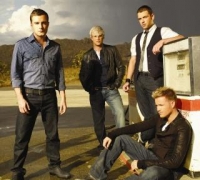
Westlife is an Irish pop band that was formed on July 3, 1998. They were signed on by Simon Cowell and are currently managed by Louis Walsh. Over the years, Westlife's music has evolved from teen pop to an adult contemporary sound, with an emphasis on ballads.
The group's original lineup comprised of Nicky Byrne, Kian Egan, Mark Feehily, Shane Filan , and Bryan McFadden. Filan and Feehily are the band's lead vocalists. All of the band members are songwriters, although most of their hits have been composed by external writers. On March 9, 2004, McFadden left the band to work on solo projects (before his departure, McFadden also contributed lead vocals).
Westlife has sold more than 40 million records worldwide. They garnered 14 number one singles in the United Kingdom, the third-highest in UK history, tying with Cliff Richard and tailing behind Elvis Presley and The Beatles. The band has also won numerous awards such as the "Best Irish Pop Act" at the annual Ireland Meteor Awards and ITV "Record of the Year" award in the UK. The band has also broken a few top records, including "Music artist with most consecutive number 1's in the UK" and the "Biggest selling arena act in the UK".
The group's original lineup comprised of Nicky Byrne, Kian Egan, Mark Feehily, Shane Filan , and Bryan McFadden. Filan and Feehily are the band's lead vocalists. All of the band members are songwriters, although most of their hits have been composed by external writers. On March 9, 2004, McFadden left the band to work on solo projects (before his departure, McFadden also contributed lead vocals).
Westlife has sold more than 40 million records worldwide. They garnered 14 number one singles in the United Kingdom, the third-highest in UK history, tying with Cliff Richard and tailing behind Elvis Presley and The Beatles. The band has also won numerous awards such as the "Best Irish Pop Act" at the annual Ireland Meteor Awards and ITV "Record of the Year" award in the UK. The band has also broken a few top records, including "Music artist with most consecutive number 1's in the UK" and the "Biggest selling arena act in the UK".
Idina Menzel

Idina Kim Menzel (/ɪˈdiːnə mɛnˈzɛl/; born Idina Kim Mentzel; May 30, 1971) is an American actress and singer.
Menzel is known for her performance as the voice of Queen Elsa in the 2013 Disney film Frozen. Additionally, she portrayed the recurring role of Shelby Corcoran on the Fox musical comedy-drama TV series Glee, as well as Nancy in the 2007 Disney film Enchanted. Holiday Wishes (2014), her first album in six years, reached number six on the Billboard 200 albums chart. Menzel is the only competitive Tony Award-winning actress to ever reach the top 10 of the Billboard Hot 100. She performed a solo world concert tour from May to October 2015.
Menzel is known for her performance as the voice of Queen Elsa in the 2013 Disney film Frozen. Additionally, she portrayed the recurring role of Shelby Corcoran on the Fox musical comedy-drama TV series Glee, as well as Nancy in the 2007 Disney film Enchanted. Holiday Wishes (2014), her first album in six years, reached number six on the Billboard 200 albums chart. Menzel is the only competitive Tony Award-winning actress to ever reach the top 10 of the Billboard Hot 100. She performed a solo world concert tour from May to October 2015.
Traditional

Ben Cantelon

Benjamin Lennart Cantelon (born August 5, 1983) is a Canadian Christian musician based in the United Kingdom, who primarily plays a contemporary Christian style of worship music. He has released three extended plays, Daylight Breaks Through in 2007, with Survivor Records, Introducing Ben Cantelon in 2009, with Kingsway Music, and The Ascent, Vol 1 in 2016, and two studio albums, both with Kingsway Music, Running After You in 2009, and Everything in Colour in 2012.
Benny Anderson
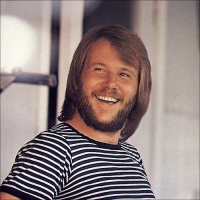
Göran Bror Benny Andersson is a Swedish singer, musician, composer, producer, member of the Swedish music group ABBA and co-composer of the musicals Chess, Kristina från Duvemåla, and Mamma Mia! For the 2008 film version of Mamma Mia! and its 2018 sequel, Mamma Mia!
Nick Reyes
Nicolas Reyes is the lead singer, guitarist, songwriter, arranger, producer and founder of the French musical group Gipsy Kings, along with Tonino Baliardo, the group popular for their Spanish music in the 1980s.
BoA

Boa Kwon (born November 5, 1986 in Gyeonggi-do, South Korea), commonly known by her stage name BoA, is a multilingual Korean singer. She has been active in both South Korea and Japan. Aside from her native Korean, BoA also speaks Japanese and conversational English She has also released a number of Chinese songs, although she is not able to speak the language itself.
BoA has achieved great commercial success, particularly in South Korea and Japan where she has claimed four number one studio albums in Korea and six in Japan. The release of The Face made BoA only one of two artists in J-pop history to top the Oricon Weekly Album Charts six consecutive times, with the other being Ayumi Hamasaki who currently has eight consecutive number one albums.
BoA has achieved great commercial success, particularly in South Korea and Japan where she has claimed four number one studio albums in Korea and six in Japan. The release of The Face made BoA only one of two artists in J-pop history to top the Oricon Weekly Album Charts six consecutive times, with the other being Ayumi Hamasaki who currently has eight consecutive number one albums.
Marvin Gaye
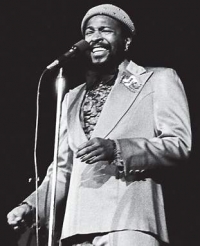
Marvin Pentz Gay, Jr., better known as Marvin Gaye (April 2, 1939 - April 1, 1984) was an American singer-songwriter, drummer, pianist and instrumentalist. Starting his career as a member of the successful doo-wop group The Moonglows in the late fifties, he ventured into a solo career shortly after the group disbanded in 1960 signing with the Tamla subsidiary of Motown Records. After a year as a session drummer, Marvin quickly ranked as the label's top-selling solo artist during the sixties. Due to numerous solo hits including "How Sweet It Is (To Be Loved By You)", "Ain't That Peculiar", "I Heard It Through the Grapevine" and his duet singles with singers such as Mary Wells and Tammi Terrell, he was crowned "The Prince of Motown"and "The Prince of Soul".
Notable for fighting the hit-making, but creatively restrictive, Motown record-making process, in which performers and songwriters and record producers were generally kept in separate camps, Marvin was able to prove with albums like his groundbreaking 1971 album, What's Going On and his 1973 album, Let's Get It On, that he was able to produce his own form of musical expression without relying on the Motown system inspiring fellow Motown artists such as Stevie Wonder nd Michael Jackson to do the same.
His mid-1970s work including the Let's Get It On and I Want You albums helped to influence the quiet storm, urban adult contemporary and slow jam genres. After a self-imposed European exile in the late seventies, Marvin returned to prominence briefly on the 1982 Grammy-winning hit, "Sexual Healing" and the Midnight Love album before his tragic death at the hands of his clergyman father on April 1, 1984. He was posthumously inducted to the Rock and Roll Hall of Fame in 1987.
Notable for fighting the hit-making, but creatively restrictive, Motown record-making process, in which performers and songwriters and record producers were generally kept in separate camps, Marvin was able to prove with albums like his groundbreaking 1971 album, What's Going On and his 1973 album, Let's Get It On, that he was able to produce his own form of musical expression without relying on the Motown system inspiring fellow Motown artists such as Stevie Wonder nd Michael Jackson to do the same.
His mid-1970s work including the Let's Get It On and I Want You albums helped to influence the quiet storm, urban adult contemporary and slow jam genres. After a self-imposed European exile in the late seventies, Marvin returned to prominence briefly on the 1982 Grammy-winning hit, "Sexual Healing" and the Midnight Love album before his tragic death at the hands of his clergyman father on April 1, 1984. He was posthumously inducted to the Rock and Roll Hall of Fame in 1987.
Joseph Kosma
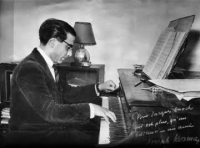
Joseph Kosma was a Hungarian-French composer. Date of birth: October 22, 1905, Budapest, Hungary Date and place of death: August 7, 1969, France
Trond Kverno
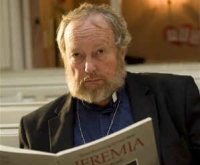
Trond Hans Farner Kverno (born 20 October 1945, in Oslo) is a contemporary Norwegian composer. He received degrees in church music, music theory and choir direction from the Norwegian Academy of Music. He is known for his liturgical compositions.He also serves as an Auxiliary Bishop of the Christ Catholic Church International.
Church music has spearheaded major new developments in music in Norway throughout the post-war period, in terms of both musical innovation and institutional renewal. At the same time church music composers have enjoyed growing popularity among musicians and listeners alike. Trond H.F. Kverno has been an exponent of this tradition since the 1970s, and his compositions are today among the finest and most frequently performed in Norway.
Church music has spearheaded major new developments in music in Norway throughout the post-war period, in terms of both musical innovation and institutional renewal. At the same time church music composers have enjoyed growing popularity among musicians and listeners alike. Trond H.F. Kverno has been an exponent of this tradition since the 1970s, and his compositions are today among the finest and most frequently performed in Norway.
twila paris
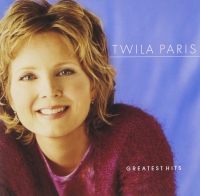
Twila Paris is a contemporary Christian music singer, songwriter, author and pianist. Since 1980, Paris has released 22 albums, amassed 33 number one Christian Radio singles, and was named the Gospel Music Association Female Vocalist of the Year three years in a row. Many of her earlier songs such as "He Is Exalted", "We Will Glorify", "Lamb of God", and "We Bow Down", are found in church hymnals or otherwise sung in church settings. She was inducted into the Gospel Music Association Hall of Fame in May 2015.
Damien Rice
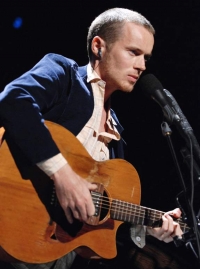
Damien Rice (born December 7, 1973) is an Irish folk singer. He was born in Dublin, Ireland, to George and Maureen Rice and was raised in Celbridge, County Kildare, Ireland. He is also a distant relative of the famous Dubliner Katharine Rice.
He has released five albums: O, B-Sides, 9, Live At Fingerprints Warts & All, and Live from the Union Chapel.
Thanks to David Arnold, his second cousin, Rice was able to record O, which was released in 2003. O was dedicated to fellow Irish musician Mic Christopher. The album was a strong commercial success and won the Shortlist Music Prize.
Three years later, following extensive promotion of O in Ireland and further commercial success worldwide, Rice released his second studio album 9 in 2006. The album was recorded in 2004 and 2005, and released on November 3 in Ireland, on November 6 in Europe and the rest of the world and lastly on November 14 in North America.
He has released five albums: O, B-Sides, 9, Live At Fingerprints Warts & All, and Live from the Union Chapel.
Thanks to David Arnold, his second cousin, Rice was able to record O, which was released in 2003. O was dedicated to fellow Irish musician Mic Christopher. The album was a strong commercial success and won the Shortlist Music Prize.
Three years later, following extensive promotion of O in Ireland and further commercial success worldwide, Rice released his second studio album 9 in 2006. The album was recorded in 2004 and 2005, and released on November 3 in Ireland, on November 6 in Europe and the rest of the world and lastly on November 14 in North America.
Étienne Nicolas Méhul
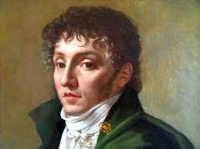
Étienne Nicolas Méhul was a French composer, "the most important opera composer in France during the Revolution". He was also the first composer to be called a "Romantic". He is known particularly for his operas, written in keeping with the reforms introduced by Christoph Willibald Gluck.
Robert Lucas Pearsall
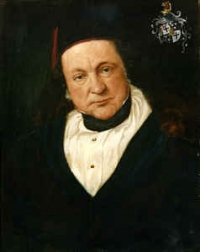
Robert Lucas Pearsall was an English composer mainly of vocal music, including an elaborate setting of "In dulci jubilo" often heard today. He spent the last 31 years of his life abroad, at first in Germany, then at a castle he bought in Switzerland.
William Byrd
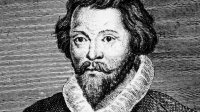
William Byrd (/bɜːrd/; birth date variously given as c.1539/40 or 1543 – 4 July 1623), was an English composer of the Renaissance. He wrote in many of the forms current in England at the time, including various types of sacred and secular polyphony, keyboard (the so-called Virginalist school), and consort music. Although he produced sacred music for Anglican services, sometime during the 1570s he became a Roman Catholic and wrote Catholic sacred music later in his life.
You're a Good Man Charlie Brown
Clark Gesner (born March 27, 1938, in Augusta, Maine, died July 23, 2002, in downtown New York City) was an American composer, songwriter, author, and actor. He is probably best known for composing You're a Good Man, Charlie Brown, a musical adaptation of the Charles M. Schulz comic strip Peanuts.
None of his other musicals (most notably The Utter Glory of Morrissey Hall in 1979) had been able to match the success of ...Charlie Brown, though he had small success in regional productions (mostly Animal Fair in 1990).
Gesner's song "Happiness" became a hit standard in the 1960s, being recorded by various artists. The latter was also recorded in a smooth jazz version by David Benoit in May 2000, shortly after Charles M. Schulz's death, on an album entitled Here's To You, Charlie Brown: 50 Great Years! The album made it to #2 on the Top Jazz Albums chart.
None of his other musicals (most notably The Utter Glory of Morrissey Hall in 1979) had been able to match the success of ...Charlie Brown, though he had small success in regional productions (mostly Animal Fair in 1990).
Gesner's song "Happiness" became a hit standard in the 1960s, being recorded by various artists. The latter was also recorded in a smooth jazz version by David Benoit in May 2000, shortly after Charles M. Schulz's death, on an album entitled Here's To You, Charlie Brown: 50 Great Years! The album made it to #2 on the Top Jazz Albums chart.
Jonathan Coulton
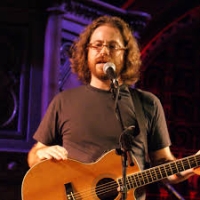
Jonathan Coulton, often called "JoCo" by fans, is an American singer-songwriter, known for his songs about geek culture and his use of the Internet to draw fans. Among his most popular songs are "Code Monkey", "Re: Your Brains", "Still Alive" and "Want You Gone".
John Rutter
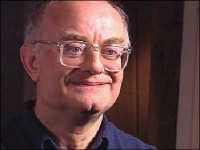
John Milford Rutter CBE (born 24 September 1945) is a British composer, conductor, editor, arranger and record producer, mainly of choral music.
Hillsong United

The Hillsong United band is an Australian rock and worship band, a part of Hillsong Church's youth ministry Hillsong United. Their music is a contemporary style of praise and worship tempered with mainstream rock.
Current members of the Hillsong United band include Jonathon Douglass (J.D.), Jadwin "Jad" Gillies, Holly Watson, Annie Garratt, Bec Gillies, and Michelle Fragar, daughter of Russell Fragar. Michael Guy Chislett plays guitar and Matthew Tennikoff plays bass guitar. Former original drummer Luke Munns made a transition from the drums to front the rock/indie band LUKAS. Popular New Zealand artist Brooke Fraser recently joined the band when she joined the church, first appearing on United We Stand.
The annual Hillsong United CD/DVD was recorded over many years during their October youth conference Encounterfest, with the album released in the first quarter of the following year. The 2007 album All of the Above was the first album to be fully studio recorded, containing videos of songs on the DVD. The band has toured in a number of countries, leading worship to thousands in North and South America, Europe and Asia.
Current members of the Hillsong United band include Jonathon Douglass (J.D.), Jadwin "Jad" Gillies, Holly Watson, Annie Garratt, Bec Gillies, and Michelle Fragar, daughter of Russell Fragar. Michael Guy Chislett plays guitar and Matthew Tennikoff plays bass guitar. Former original drummer Luke Munns made a transition from the drums to front the rock/indie band LUKAS. Popular New Zealand artist Brooke Fraser recently joined the band when she joined the church, first appearing on United We Stand.
The annual Hillsong United CD/DVD was recorded over many years during their October youth conference Encounterfest, with the album released in the first quarter of the following year. The 2007 album All of the Above was the first album to be fully studio recorded, containing videos of songs on the DVD. The band has toured in a number of countries, leading worship to thousands in North and South America, Europe and Asia.
Wonder Girls

Wonder Girls (Korean: 원더걸스) was a South Korean girl group formed by JYP Entertainment. The group debuted in February 2007 with the single "Irony" and five members: Yeeun, Sunye, Sunmi, Hyuna and Sohee. After Hyuna's departure in July, Yubin was added into the group prior to the release of their debut studio album, The Wonder Years (2007). The album spawned the hit single "Tell Me", which topped various South Korea's on and offline music charts.
Lara Fabian

Lara Fabian (born Lara Crokaert, January 9, 1970) is a Belgian-Italian international singer who holds Canadian citizenship. Multilingual, she sings in French, Italian and English. She has also sung in Spanish, Portuguese, Russian once in Hebrew on Israel's 60th Independence Day celebrations, and in German in 1988 for a version of "Croire" (ger.: "glauben" eng.: "believe"). She has sold over 18 million records worldwide.
Anne Barbour

Anne Barbour Musical artist Genre: Gospel Songs Protector Of My Soul Songs 4 Worship: In Christ Alone · 2002
I Will Follow The Story of Perfect Love · 2010 The Story of Perfect Love The Story of Perfect Love · 2010.
I Will Follow The Story of Perfect Love · 2010 The Story of Perfect Love The Story of Perfect Love · 2010.
William Finn
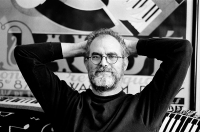
William Alan Finn (born February 28, 1952) is an American composer and lyricist of musicals. His musical Falsettos received the 1992 Tony Awards for Best Music and Lyrics and for Best Book.
Milton Ager
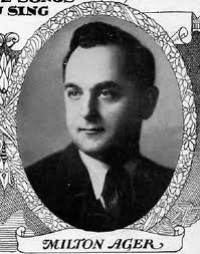
Milton Ager (October 6, 1893 – May 6, 1979) was an American composer.
Ager was born in Chicago, Illinois, the sixth of nine children. Leaving school with only three years of formal high-school education, he taught himself to play the piano and embarked on a career as a musician. After spending time as an accompanist to silent movies, he moved to New York to write music. During World War I he served as a morale officer.
Ager also was a music publisher in partnership with his frequent musical collaborator, lyricist Jack Yellen. He moved to Hollywood where he made a living writing songs for film. On his death, Milton Ager was interred in the Westwood Village Memorial Park Cemetery in Los Angeles.
Ager was born in Chicago, Illinois, the sixth of nine children. Leaving school with only three years of formal high-school education, he taught himself to play the piano and embarked on a career as a musician. After spending time as an accompanist to silent movies, he moved to New York to write music. During World War I he served as a morale officer.
Ager also was a music publisher in partnership with his frequent musical collaborator, lyricist Jack Yellen. He moved to Hollywood where he made a living writing songs for film. On his death, Milton Ager was interred in the Westwood Village Memorial Park Cemetery in Los Angeles.
Stevie Nicks
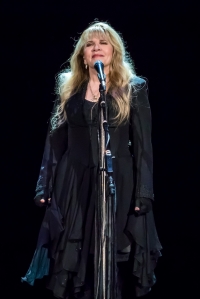
Stephanie Lynn "Stevie" Nicks (born May 26, 1948) is an American singer and songwriter known for her work with the band Fleetwood Mac and as a solo artist. She is known for her distinctive voice, mystical stage persona and poetic, symbolic lyrics.Nicks joined Fleetwood Mac in 1975 along with her then-boyfriend Lindsey Buckingham. In 1981, while remaining a member of Fleetwood Mac, Nicks began her solo career, releasing the studio album Bella Donna, which topped the Billboard 200 and has reached multiplatinum status. She has released eight solo studio albums.
Suzanne Hirle

Suzanne Hirle Musical artist Albums: Letra e Musica Songs Missão Mulher Missão Mulher · 2021 O Monte Letra e Musica · 2015 Letra e Música Letra e Musica · 2015
Henry Russell
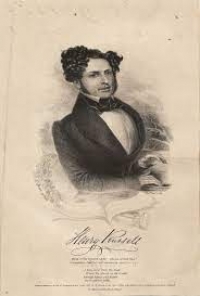
Henry Russell (24 December 1812 or 1813 – 8 December 1900) was an English pianist, baritone singer and composer, born into a distinguished Jewish family.Russell's career began in 1836, when at the age of 22 he traveled to the US and, in three seasons, earned no less a sum than £10,000. He subsequently lost this by investing in the United States Bank, which collapsed.
Pete St John
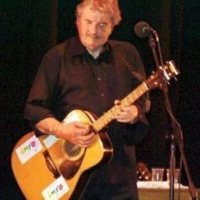
Peter Mooney, known professionally as Pete St John, was an Irish folk singer-songwriter. Born in Dublin, Ireland, he was best known for composing "The Fields of Athenry".
Wicked

Wicked is a musical with songs and lyrics by Stephen Schwartz and a book by Winnie Holzman. The story is based on the best-selling novel Wicked: The Life and Times of the Wicked Witch of the West by Gregory Maguire, a parallel novel of L. Frank Baum's classic story The Wonderful Wizard of Oz from the perspective of the witches of the Land of Oz.
Wicked tells the story of Elphaba, the future Wicked Witch of the West and her relationship with Glinda, the Good Witch of the North. Their friendship struggles through their opposing personalities and viewpoints, rivalry over the same love-interest, their reactions to the Wizard's corrupt government, and, ultimately, Elphaba's public fall from grace. The plot is set mostly before Dorothy's arrival from Kansas, and includes several references to well-known scenes and dialogue in the 1939 film The Wizard of Oz.
The musical debuted on Broadway on October 30, 2003. It is produced by Universal Pictures and directed by Joe Mantello, with musical staging by Wayne Cilento. Its original stars were Idina Menzel as Elphaba, Kristin Chenoweth as Glinda, and Joel Grey as the Wizard. Although the production received mixed reviews and was panned by The New York Times, it has proved to be a favorite among patrons. The Broadway production's success spawned productions in Chicago, Los Angeles, London's West End, Tokyo, Melbourne, and Stuttgart, along with two North American tours that have visited over 30 cities in Canada and the United States.
The score of Wicked is heavily thematic, bearing in some senses more resemblance to a film score than a musical's score. While many musicals' scores develop new motifs and melodies for each song with little overlap, Schwartz integrated a handful of leitmotifs throughout the production. A cast recording of the original Broadway production was released on December 16, 2003, by Universal Music. All of the songs featured on stage are present on the recording with the exception of "The Wizard And I (Reprise)" and "The Wicked Witch of the East". The short reprise of "No One Mourns The Wicked" that opens Act II is attached to the beginning of "Thank Goodness". The music was arranged by Stephen Oremus, who was also the conductor and director, and James Lynn Abbott, with orchestrations by William David Brohn. The recording received the Grammy Award for Best Musical Show Album in 2005 and was certified platinum by the RIAA on November 30, 2006.
Wicked tells the story of Elphaba, the future Wicked Witch of the West and her relationship with Glinda, the Good Witch of the North. Their friendship struggles through their opposing personalities and viewpoints, rivalry over the same love-interest, their reactions to the Wizard's corrupt government, and, ultimately, Elphaba's public fall from grace. The plot is set mostly before Dorothy's arrival from Kansas, and includes several references to well-known scenes and dialogue in the 1939 film The Wizard of Oz.
The musical debuted on Broadway on October 30, 2003. It is produced by Universal Pictures and directed by Joe Mantello, with musical staging by Wayne Cilento. Its original stars were Idina Menzel as Elphaba, Kristin Chenoweth as Glinda, and Joel Grey as the Wizard. Although the production received mixed reviews and was panned by The New York Times, it has proved to be a favorite among patrons. The Broadway production's success spawned productions in Chicago, Los Angeles, London's West End, Tokyo, Melbourne, and Stuttgart, along with two North American tours that have visited over 30 cities in Canada and the United States.
The score of Wicked is heavily thematic, bearing in some senses more resemblance to a film score than a musical's score. While many musicals' scores develop new motifs and melodies for each song with little overlap, Schwartz integrated a handful of leitmotifs throughout the production. A cast recording of the original Broadway production was released on December 16, 2003, by Universal Music. All of the songs featured on stage are present on the recording with the exception of "The Wizard And I (Reprise)" and "The Wicked Witch of the East". The short reprise of "No One Mourns The Wicked" that opens Act II is attached to the beginning of "Thank Goodness". The music was arranged by Stephen Oremus, who was also the conductor and director, and James Lynn Abbott, with orchestrations by William David Brohn. The recording received the Grammy Award for Best Musical Show Album in 2005 and was certified platinum by the RIAA on November 30, 2006.
Bart Howard
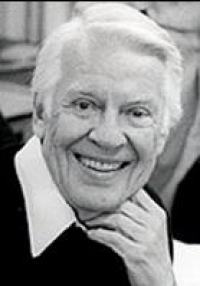
Bart Howard (born Howard Joseph Gustafson; June 1, 1915 — February 21, 2004) was the composer and writer of the famous jazz standard "Fly Me To The Moon", which has been performed by singers (among others) Frank Sinatra, Ella Fitzgerald, Nancy Wilson, Della Reese, Diana Krall, June Christy and Astrud Gilberto. It is also played frequently by jazz and popular musicians around the world.
Howard was born in Burlington, Iowa. He began his career as an accompanist at the age of 16 and played for Mabel Mercer, Johnny Mathis and Eartha Kitt, among others.
"Fly Me To the Moon" was first sung in 1954 by Felicia Sanders at the "Blue Angel" club in Manhattan where the composer became M.C. and accompanist in 1951. The song received wide exposure when Peggy Lee sang it on The Ed Sullivan Show several years later. Bart Howard "lived off" this song for the rest of his life, although he had 49 other songs to his credit.
He died, aged 88, in Carmel, New York. He was survived by a sister Dorothy Lind of Burlington, Iowa and by his companion of 58 years, Thomas Fowler.
Howard was born in Burlington, Iowa. He began his career as an accompanist at the age of 16 and played for Mabel Mercer, Johnny Mathis and Eartha Kitt, among others.
"Fly Me To the Moon" was first sung in 1954 by Felicia Sanders at the "Blue Angel" club in Manhattan where the composer became M.C. and accompanist in 1951. The song received wide exposure when Peggy Lee sang it on The Ed Sullivan Show several years later. Bart Howard "lived off" this song for the rest of his life, although he had 49 other songs to his credit.
He died, aged 88, in Carmel, New York. He was survived by a sister Dorothy Lind of Burlington, Iowa and by his companion of 58 years, Thomas Fowler.
Rossini

Gioachino Antonio Rossini (February 29, 1792 – November 13, 1868) was a popular Italian composer who created 39 operas as well as sacred music and chamber music. His best known works include Il barbiere di Siviglia (The Barber of Seville), La Cenerentola and Guillaume Tell (William Tell).
Rossini's most famous opera was produced on February 20, 1816 at the Teatro Argentina in Rome. The libretto by Cesare Sterbini, a version of Pierre Beaumarchais' infamous stage play Le Barbier de Séville, was the same as that already used by Giovanni Paisiello in his own Barbiere, an opera which had enjoyed European popularity for more than a quarter of a century. Much is made of how fast Rossini's opera was written, scholarship generally agreeing upon two weeks. Later in life, Rossini claimed to have written the opera in only twelve days. It was a colossal failure when it premiered as Almaviva; Paisiello’s admirers were extremely indignant, sabotaging the production by whistling and shouting during the entire first act. However, not long after the second performance, the opera became so successful that the fame of Paisiello's opera was transferred to Rossini's, to which the title The Barber of Seville passed as an inalienable heritage.
Rossini's most famous opera was produced on February 20, 1816 at the Teatro Argentina in Rome. The libretto by Cesare Sterbini, a version of Pierre Beaumarchais' infamous stage play Le Barbier de Séville, was the same as that already used by Giovanni Paisiello in his own Barbiere, an opera which had enjoyed European popularity for more than a quarter of a century. Much is made of how fast Rossini's opera was written, scholarship generally agreeing upon two weeks. Later in life, Rossini claimed to have written the opera in only twelve days. It was a colossal failure when it premiered as Almaviva; Paisiello’s admirers were extremely indignant, sabotaging the production by whistling and shouting during the entire first act. However, not long after the second performance, the opera became so successful that the fame of Paisiello's opera was transferred to Rossini's, to which the title The Barber of Seville passed as an inalienable heritage.
Mozart

Wolfgang Amadeus Mozart, full name Johann Chrysostom Wolfgang Amadeus Mozart (27 January 1756 â 5 December 1791) was a prolific and influential composer of the Classical era. His over 600 compositions include works widely acknowledged as pinnacles of symphonic, concertante, chamber, piano, operatic, and choral music. Mozart is among the most enduringly popular of classical composers, and many of his works are part of the standard concert repertoire.
Mozart's music, like Haydn's, stands as an archetypal example of the Classical style. His works spanned the period during which that style transformed from one exemplified by the style galant to one that began to incorporate some of the contrapuntal complexities of the late Baroque, complexities against which the galant style had been a reaction. Mozart's own stylistic development closely paralleled the development of the classical style as a whole. In addition, he was a versatile composer and wrote in almost every major genre, including symphony, opera, the solo concerto, chamber music including string quartet and string quintet, and the piano sonata. While none of these genres were new, the piano concerto was almost single-handedly developed and popularized by Mozart. He also wrote a great deal of religious music, including masses; and he composed many dances, divertimenti, serenades, and other forms of light entertainment.
The central traits of the classical style can be identified in Mozart's music. Clarity, balance, and transparency are hallmarks of his work.
Mozart's music, like Haydn's, stands as an archetypal example of the Classical style. His works spanned the period during which that style transformed from one exemplified by the style galant to one that began to incorporate some of the contrapuntal complexities of the late Baroque, complexities against which the galant style had been a reaction. Mozart's own stylistic development closely paralleled the development of the classical style as a whole. In addition, he was a versatile composer and wrote in almost every major genre, including symphony, opera, the solo concerto, chamber music including string quartet and string quintet, and the piano sonata. While none of these genres were new, the piano concerto was almost single-handedly developed and popularized by Mozart. He also wrote a great deal of religious music, including masses; and he composed many dances, divertimenti, serenades, and other forms of light entertainment.
The central traits of the classical style can be identified in Mozart's music. Clarity, balance, and transparency are hallmarks of his work.
Sayed Darwish
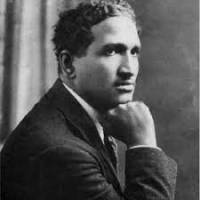
Sayed Darwish was an Egyptian singer and composer who was considered the father of Egyptian popular music and one of Egypt's greatest musicians and seen by some as its single greatest composer.
Sindo Garay
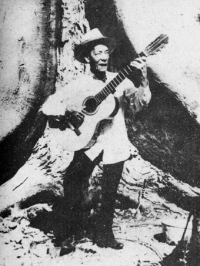
Sindo Garay (born Antonio Gumersindo Garay García; Santiago de Cuba, 12 April 1867 – Havana, 17 July 1968) was Cuban trova musician. He was taught by Pepe Sánchez. Garay was one of the four greats of the trova. He was Spanish and Arawakan descendant.Garay was the most outstanding composer of trova songs, and his best have been sung and recorded many times. Perla marina, Adios a La Habana, Mujer bayamesa, El huracan y la palma, Guarina and many others are now part of Cuba's heritage. Garay was also musically illiterate – in fact, he only taught himself the alphabet at 16 – but in his case not only were scores transcribed by others, but there are recordings as well.
Tom Kitt
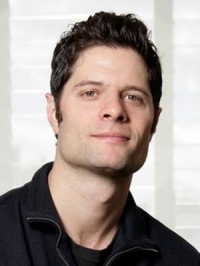
Thomas Robert "Tom" Kitt (born 1974) is an American composer, conductor, orchestrator and musician. For his score for the musical Next to Normal, he shared the 2010 Pulitzer Prize for Drama with Brian Yorkey. He also won the Tony Award and 2008 Outer Critics Circle Award, and was nominated for a Drama Desk Award for American Idiot and Everyday Rapture.
Chiqui Pineda

Chiqui Pineda is a Filipino artist. Multi-skilled and talented, Chiqui is a firm believer of “courage in creativity”. Born in Manila, Chiqui attended Stella Maris Academy of Davao City and completed an Economics degree at UP Diliman. The “How Did You Know” Years. Chiqui was a VIVA Record artist from 1994 to 1998.
Harry Dacre
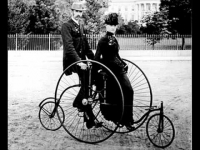
Harry Dacre was the pen-name of Frank Dean (September 1857–16 July 1922), a British songwriter best known for his composition "Daisy Bell (Bicycle Built For Two)".Dean was born on the Isle of Man, where he was baptised on 6 September 1857. He moved to Manchester, and then to Preston, Lancashire around 1882. He decided to make a career in songwriting, and used the pseudonyms Harry Dacre and Henry Decker (which some sources state was his birth name).[
Don Ho
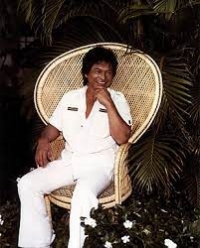
Ho was a singer of Native Hawaiian, Chinese, Portuguese, Dutch, and German descent. He was born in the small Honolulu neighborhood of Kakaʻako to Emily (Honey) Leimaile Silva and James Ah You Puao Ho, but he grew up in Kāneʻohe on the windward side of the island of Oʻahu. He was a graduate of the Kamehameha Schools in 1949 and he attended Springfield College on a football scholarship in 1950, but returned home to earn a Bachelor's degree in sociology at University of Hawai'i in 1953. In 1954, Ho entered the United States Air Force doing his primary training at Columbus AFB, Mississippi and spent time flying C-97s with the Military Air Transport Service. Transferred to Travis AFB, California, he went to the local city of Concord and bought an electronic keyboard from a music store, and recalls, "That's when it all started."
David Gates
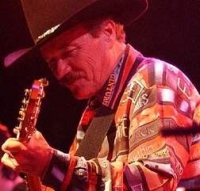
David Gates (born December 11, 1940, in Tulsa, Oklahoma) is an American singer-songwriter, best known as the lead singer of the group Bread, which during the 1970s peaked the music charts with numerous well known songs. The band is now in the Vocal Group Hall of Fame.
The David Gates Songbook, containing earlier hit singles and new material, was released in 2002. Gates's songs have been recorded by many artists, including Telly Savalas, who had a UK #1 hit with "If" in 1975; Vesta Williams, who made a rendition of "Make It With You" in 1988; the band CAKE, which covered "The Guitar Man" in 2004; Ray Parker Jr, who also recorded "The Guitar Man" in 2006; and Boy George, who took "Everything I Own" to #1 on the UK chart, when he covered the Ken Boothe reggae version of Gates's song, which itself had been a UK #1 in 1974. The lyrics sung by Boothe differ from the Gates original, most notably in the title itself, which Boothe sings as "Anything I Own"!
The David Gates Songbook, containing earlier hit singles and new material, was released in 2002. Gates's songs have been recorded by many artists, including Telly Savalas, who had a UK #1 hit with "If" in 1975; Vesta Williams, who made a rendition of "Make It With You" in 1988; the band CAKE, which covered "The Guitar Man" in 2004; Ray Parker Jr, who also recorded "The Guitar Man" in 2006; and Boy George, who took "Everything I Own" to #1 on the UK chart, when he covered the Ken Boothe reggae version of Gates's song, which itself had been a UK #1 in 1974. The lyrics sung by Boothe differ from the Gates original, most notably in the title itself, which Boothe sings as "Anything I Own"!
Vanessa Anne Hudgens

Vanessa Anne Hudgens (/ˈhʌdʒəns/; born December 14, 1988) is an American actress, singer, and producer. After making her feature film debut in Thirteen (2003), Hudgens rose to fame portraying Gabriella Montez in the High School Musical film series (2006–2008), which brought her significant mainstream success. The success of the first film led Hudgens to acquire a recording contract with Hollywood Records, with whom she released two studio albums, V (2006) and Identified (2008).
The Pajama Game
The boss of an Iowa pajama factory hires superintendent Sid Sorokin (John Raitt) to help oppose the workers' demand for a seven-and-a-half-cent raise. Sid's handsome, affable presence stirs the jealousy of foreman Vernon Hines, who is dating bookkeeper Gladys Hotchkiss (Carol Haney), and attracts wo…
Gus Edwards
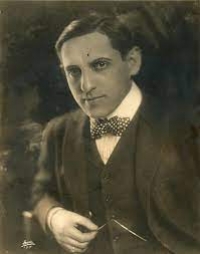
In 1896, vaudeville agent, James Hyde saw Edwards’ performance at the Johnny Palmer’s Gaiety Saloon. Soon after, Hyde formed a variety quintet with Edwards and four other boys. The new act was called the Newsboys Quintet and immediately they were booked on a nation-wide tour. While on tour in 1898, Edwards wrote his first song “All I Want is My Black Baby Back” (popularized by May Irwin).
Aleksandr Alyabyev
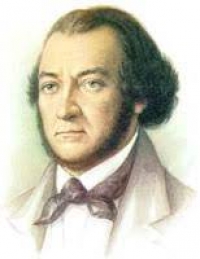
Alexander Aleksandrovich Alyabyev, also rendered as Alabiev or Alabieff, was a Russian composer known as one of the fathers of the Russian art song. He wrote seven operas, twenty musical comedies, a symphony, three string quartets, more than 200 songs, and many other pieces.
Gary Jules
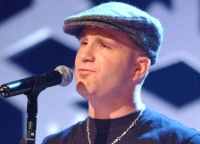
Gary Jules (born March 19, 1969 in Fresno, California as Gary Jules Aguirre) is an American singer-songwriter, best known for his cover of Tears for Fears' third single "Mad World", which he recorded together with friend Michael Andrews for the cult film Donnie Darko. It became the UK Christmas Number One single of 2003. Since then it has been used on popular American TV shows, and most recently in the commercial for the Xbox 360 video game Gears of War.
Some of his early projects / bands were The Ivory Knights, Our Town Pansies, Woodenfish, Kofi, The Origin, "Invisible", "No poetry," and "Heroes and Heroin."
Some of his early projects / bands were The Ivory Knights, Our Town Pansies, Woodenfish, Kofi, The Origin, "Invisible", "No poetry," and "Heroes and Heroin."
André van Haren

André van Haren Musical artist Genre: Classical Record label: André Van Haren Albums: Moments for piano solo
Songs After work late at night Moments for piano solo · 2020 The lost child Moments for piano solo · 2020 A Winter Tale
Moments for piano solo · 2020.
Songs After work late at night Moments for piano solo · 2020 The lost child Moments for piano solo · 2020 A Winter Tale
Moments for piano solo · 2020.
 Download Sheet Music Net is a site for those who wants to access popular sheet music easily,
letting them download the sheet music for free for trial purposes.
It's completely free to download and try the listed sheet music, but you have to delete the files after 24 hours of trial.
Don't forget, if you like the piece of music you have just learned playing,
treat the artist with respect, and go buy the original sheet music.
Download Sheet Music Net is a site for those who wants to access popular sheet music easily,
letting them download the sheet music for free for trial purposes.
It's completely free to download and try the listed sheet music, but you have to delete the files after 24 hours of trial.
Don't forget, if you like the piece of music you have just learned playing,
treat the artist with respect, and go buy the original sheet music.

